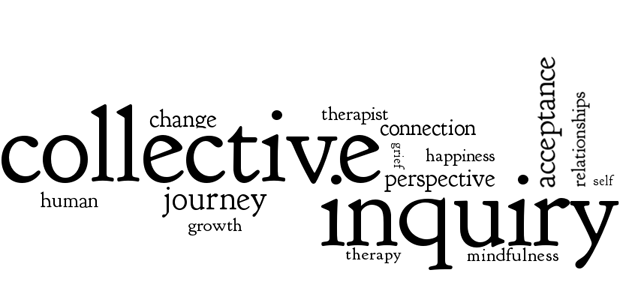

This past week, I attended a conference in Phoenix that focused on families. While there, I sat in on a discussion that focused on hot topics in the therapy world. Eventually, the conversation centered around the role of the therapist’s attitudes and beliefs in the therapy room. Should therapists be upfront to clients about their beliefs? Should therapists be allowed to refer a client to another resource if the topic of therapy is one that goes against the therapist’s fundamental beliefs? What if a therapist has already seen a client for several sessions before finding out that they represent something the therapist is fundamentally against?
As these topics were mentioned, a discussion began about what it means for therapists to “check their beliefs at the door” before entering a therapy session with a client. As many of us at CI have mentioned, we believe whole-heartedly in using our human side to empathize with clients, share in their experiences, and develop a realistic plan toward acceptance and desired change. However, for many professionals, this belief appears to contradict the statement that therapists should leave their personal biases out of the therapy room.
At one point, an audience member asked if we (the therapists) were supposed to be robots – simply regurgitating empirically-support treatment methods and nothing beyond that. Yet, again we run into the dilemma that therapists are humans, too. It is impossible to shut any part of ourselves off completely.
Finally, a therapist-in-training raised her hand to say “Don’t be a robot, be a chameleon.” As a therapist, we should be able to be flexible. If our client has beliefs that contradict ours, then we should be able to be flexible enough to work around that issue. More importantly, as therapists, we should never follow a particular belief so strongly that it prevents us from working with a particular group of people. Our training should have taught us to be compassionate to all beings regardless of their similarity or difference to you.
Even more genius, another student commented that we all have people that are different from us. Whether the difference is gender, race, socioeconomic status, sexual orientation, religious belief, and so on, therapists must be comfortable with being honest and open about whether that difference may cause a disconnect in the therapy room. And then, it should be the clients decision – they should have the choice to continue working with us or to accept a list of other resources. But as therapists, we must be able to be open and honest without passing judgment on anyone for their differences.
It is our job to create a safe and comforting space so that clients can feel comfortable to disclose what has brought them to therapy. Opening yourself to a stranger is difficult enough – if that one stranger decides to pass judgment, it makes it exponentially more difficult to open up again.
*I’d like to give a big “Thank you!” to all of the students who had the confidence to speak up during this discussion. Unfortunately, therapists (and people in general, for that matter) are notorious for getting into ruts, refusing to work with any population that is out of their comfort zone. Students provide an excellent resource because they have not had the chance to fall into a rut. They are constantly thinking out of the box, something we all need to keep practicing.
Share your thoughts
No Thoughts About Don’t Be a Robot, Be a Chameleon